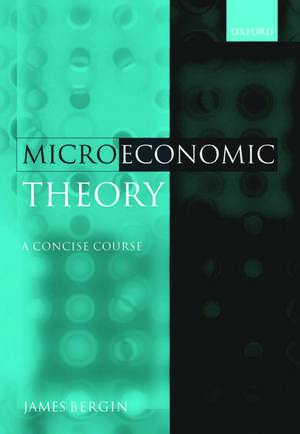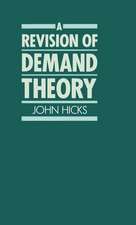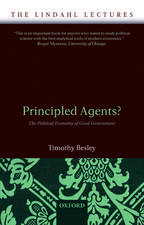Microeconomic Theory: A Concise Course
Autor James Berginen Limba Engleză Hardback – 18 mai 2005
Preț: 550.98 lei
Preț vechi: 699.56 lei
-21% Nou
Puncte Express: 826
Preț estimativ în valută:
105.46€ • 109.68$ • 88.37£
105.46€ • 109.68$ • 88.37£
Carte tipărită la comandă
Livrare economică 03-10 martie
Preluare comenzi: 021 569.72.76
Specificații
ISBN-13: 9780199280292
ISBN-10: 0199280290
Pagini: 384
Ilustrații: numerous mathematical examples and line drawings
Dimensiuni: 177 x 254 x 26 mm
Greutate: 0.81 kg
Editura: OUP OXFORD
Colecția OUP Oxford
Locul publicării:Oxford, United Kingdom
ISBN-10: 0199280290
Pagini: 384
Ilustrații: numerous mathematical examples and line drawings
Dimensiuni: 177 x 254 x 26 mm
Greutate: 0.81 kg
Editura: OUP OXFORD
Colecția OUP Oxford
Locul publicării:Oxford, United Kingdom
Notă biografică
James Bergin is Professor of Economics at Queen's University and Canada Research Chair Holder. James holds degrees from Princeton, London School of Economics and the National University of Ireland. His research interests include mechanism design, learning and evolutionary game theory, and anonymous games.














